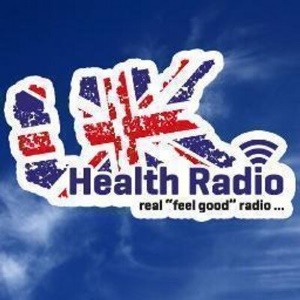How rTMS Works and Side Effects
April 18, 2017 - Smart TMS

Dr Leigh Neal – UK Health Radio’s Sunshine UKay Health Show
Dr Leigh Neal explains how rTMS – Repetitive Transcranial Magnetic Stimulation – actually works.
This was part of his recent radio interview. He says:
“…we stimulate the brain through the left frontal region, so that’s the left area just above the eye. We know that that particular area of the brain doesn’t work as efficiently in patients who’ve got a depressive episode and we know that from brain scan studies.”
“So what the magnetic pulses do – they create small electrical circuits in the brain just beneath the magnet in that particular area of the brain and because the person has/will have repeated sessions every day – they have between 10 and 13 sessions in order to treat the depression – what happens is they gradually stimulate the brain and that causes something called neuroplasticity, which is when the brain gradually starts to produce more connections between the nerve cells; and by producing more connections between the nerve cells it starts to work more efficiently and that effect is propagated through the brain, into the deeper areas of the brain, where we know that depression affects the brain.“So there’s gradually a normalisation of the degree of activity in the brain – and as well as doing that it also causes stimulation of the neurochemicals in the brain which help to treat depression, so I suppose in a way it has a natural effect in trying to restore the brain back to normality.”
TMS Side Effects
Presenter Kirsty Ashton enquired whether this non-invasive treatment has any side-effects, such as headaches. Dr Neal replied:
“There are minor side effects. About 5-10% of people get some local discomfort over the area where the magnetic treatment is done. Some people get a slight bit of discomfort during the course of the treatment and some people might get a headache which might last for a short period afterwards; but that’s easily treated with simple analgesic like paracetamol.
“That only occurs in about 5-10% of people, so 90% of patients don’t get any side effects at all.
“There are other minor side-effects like being slightly tired afterwards and minor symptoms like that.
“The main symptom we’re always concerned about is convulsions. In about 1 in 30,000 sessions, patients can have a generalised convulsion. Obviously that’s not very frequent and in effect you can also get convulsions from antidepressant medication and the rate of convulsions from TMS is not much different from that with normal antidepressants; so although we have to advise people of that risk it is obviously extremely small and we’ve never seen anybody in our clinic have a convulsion; but our nursing and staff and doctors in the clinic are all trained to deal with it, so if it were to occur, it would be managed very safely and it’s not something that anyone needs to be particularly concerned about.”
[av_button_big label=’TMS Treatment’ description_pos=’below’ link=’manually,http://’ link_target=” icon_select=’yes-left-icon’ icon=’ue889′ font=’entypo-fontello’ custom_font=’#ffffff’ color=’custom’ custom_bg=’gray’ color_hover=’theme-color’ custom_bg_hover=’#444444′ av_uid=’av-3h1p3v’]More Information[/av_button_big]
UK Health Radio
UK health radio specialises in publishing informative and relevant health topics:
“UK Health Radio is a health information Station with the most in-depth information on the widest range of health and wellness topics – available anywhere today.
“We present our information through our radio schedule that now boasts 28 health shows that air 24/7.
“All our presenters are specialists in their fields and frequently interview guests that are, once again, specialists in the subjects being discussed.”
[av_button_big label=’Listen In Full on UK Health Radio’ description_pos=’below’ link=’manually,http://ukhealthradio.com/player/?ep=10767′ link_target=’_blank’ icon_select=’yes-left-icon’ icon=’ue860′ font=’entypo-fontello’ custom_font=’#ffffff’ color=’theme-color’ custom_bg=’#444444′ color_hover=’theme-color-subtle’ custom_bg_hover=’#444444′ av_uid=’av-2jzxbf’]
Interview starts about 1/3 through
[/av_button_big]
DR LEIGH A NEAL MD FRCPSYCH
Dr Leigh A Neal is a consultant psychiatrist and Medical Director of Smart TMS, a London-based clinic offering Repetitive Transcranial Magnetic Stimulation – a non-medication-based mental health treatment.
He has been a Consultant Psychiatrist for over 20 years with a career including work within the Armed Forces, NHS and Independent Sector.
SMART TMS CLINICS
Smart TMS is a specialist provider of TMS treatment in London. Repetitive Transcranial Magnetic Stimulation therapy (rTMS) is a technological breakthrough in the treatment of depression with a variety of further potential treatment applications.
Smart TMS is located within The Smart Clinics in South Kensington/Brompton Cross.
CONTACT US
For any queries or to book an appointment, please contact us:
Tel: 0345 222 5678
Email: info@smarttms.co.uk










